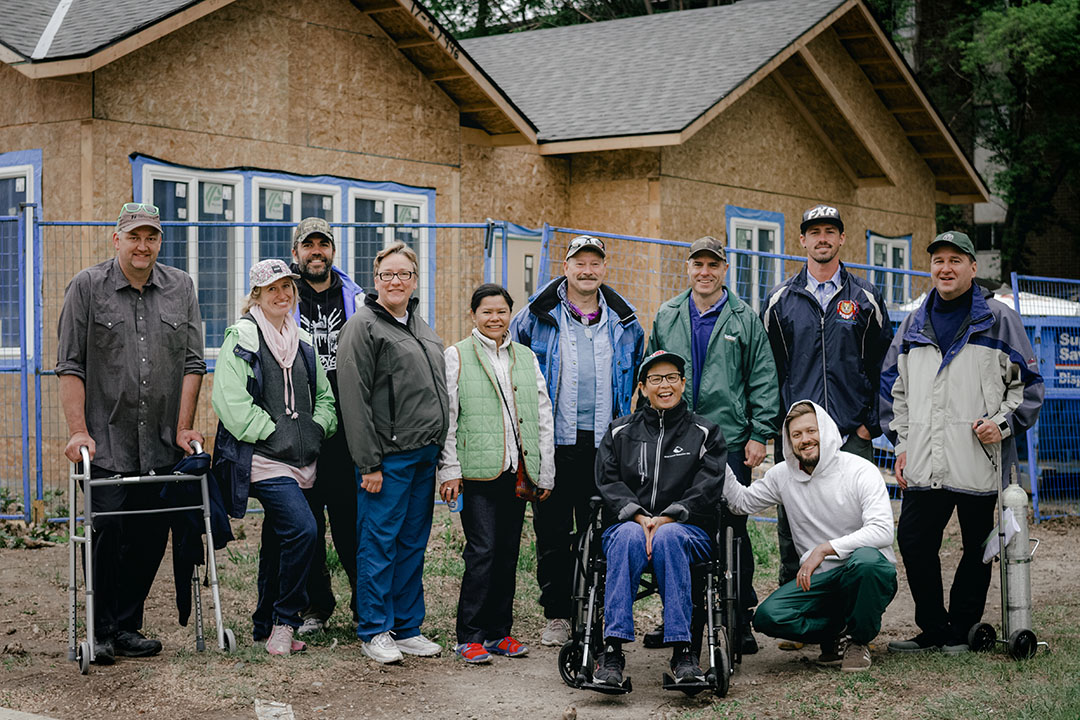
Making a difference: Experiencing life on the street
When it came time to make the decision to go without basic necessities like food, water and shelter for 36 hours, Jacqueline Ottmann knew there was no way she could say no.
By Chris MorinStill, it was not a decision that the university’s first vice-provost, Indigenous engagement could make lightly. As one of the participants in the Sanctum Survivor Challenge, in which a dozen participants take to Saskatoon’s streets from June 1 to 2 as a way to support mothers and individuals in Saskatchewan living with HIV and AIDS, Ottmann knew this was an important cause to a community that she feels a personal connection to.
“Ultimately, this was something that is such an important cause, and I said yes to doing this because I wanted to help pregnant moms with HIV and AIDS,” said Ottmann, who is Anishinaabe (Saulteaux) and a member of Saskatchewan’s Fishing Lake First Nation.
Ottmann, who recently returned to the U of S after earning her master’s in education (2002) and her PhD (2005) in the Department of Educational Administration in the College of Education, said participating in the fundraising event was something she knew would come with an emotional impact.
The Sanctum Survivor event is an annual city-wide fundraiser in which Ottmann participated along with other community leaders to gain first-hand understanding of the many challenges faced by people who experience poverty, homelessness and chronic illness in Saskatoon every day. The participants take part in a number of tasks that are framed around their survival, going without money and wearing donated clothing for the duration of the event.
“The day itself included a lot of walking. We walked over 17 kilometres to get from one agency to another, between Saskatoon AIDS to the Friendship Inn to Broadway to do laundry at the Lighthouse, where we asked the staff for garbage bags to protect our food and blankets. We did have our phones,” said Ottmann, noting that one amenity was used to tweet the 36-hour experience of homelessness.
And then there was the rain and cold.
“I wore five layers of shirts and jackets in order to keep warm,” she said. “You can’t prepare or speculate what this experience would be like. You have to be in the midst of the lived experience, which I think provides change in perspective, attitude and belief systems. I realized the weight of it all when I arrived at 6am and started picking out donor clothes to wear for the day and finding that there were very few in my size.”
“We soon realized how significant the Friendship Inn is, how warm, safe and welcoming the space is. But, more importantly, there was a sense of community there,” Ottmann continued.
“People were in conversation with one another, the service workers were kind, and it was a very safe atmosphere.”
After the event, Ottmann said it took her “awhile to process everything that I learned that day, and I think I’m still trying to understand what my role is as an advocate for those experiencing homelessness, and those mothers with HIV and AIDS.”
Ultimately, the fundraising event has left a positive impact. This September will mark the opening of Sanctum 1.5, a 10-bed care home that will support high-risk, HIV-positive, pregnant women in Saskatoon, which organizers said will be the first of its kind in Canada.
Throughout the group’s collective experiences, Ottmann, a former elementary and high school teacher and principal, said there was a lot of learning and sharing that went on throughout the 36 hours, and that this is only a start.
“We learned that there needs to be more counselling for mental health and addiction, and that homelessness, addiction and mental health are all so often connected. There needs to be an integrated approach in caring to support people who experience these challenges.”
Ottmann said that despite the negative aspects that are intrinsic to experiencing homelessness, “a lot of positive learning opportunities came from the experience. There was so much gratitude. Two of us spent the night at the Larson House detox centre. This experience was very deep; the centre became full and so they had to turn people away and there we were with two beds. It was hard to accept.
“At the same time, I feel so grateful for everything that these caregivers do for those in need on a daily basis.”

